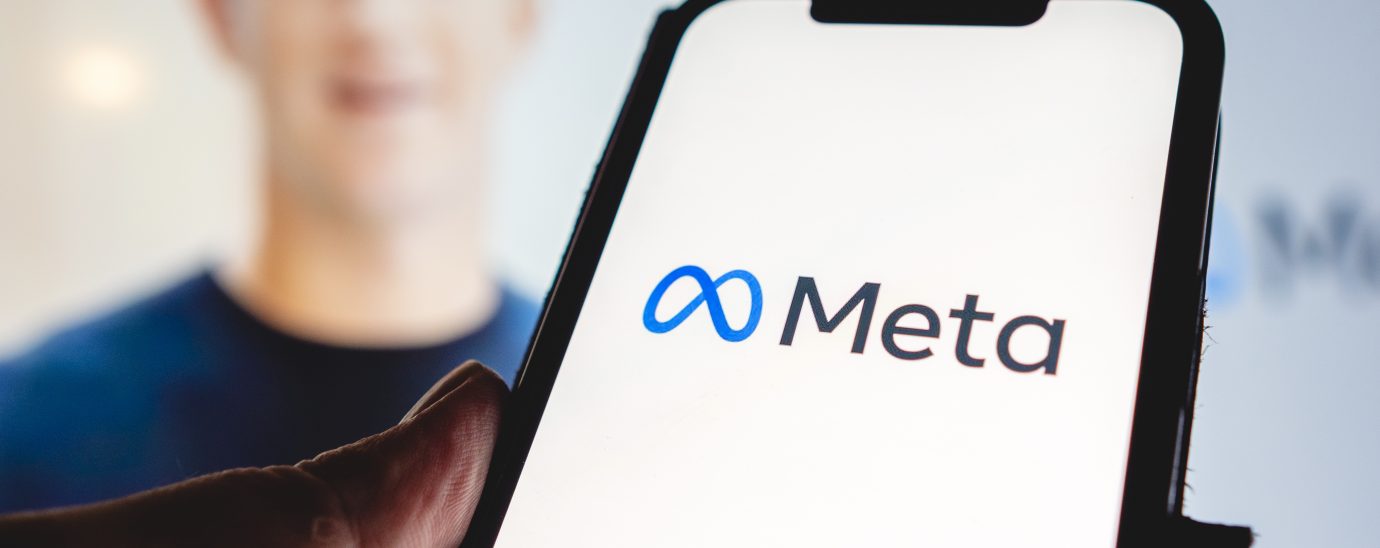Facebook rebrands to Meta, so what does this mean?

In Mark Zuckerberg’s pursuit of a universe where digital worlds and reality collide, he has renamed Facebook to Meta. So what does this actually mean?
Following rumours over the last few weeks, Mark Zuckerberg has renamed Facebook to Meta. This parent rebrand reflects his goal of creating “the metaverse” where reality and virtual are blended, enabling users to interact in new ways. The social networking business will split into Meta and Reality Labs, with the latter dedicated to creating the metaverse. The social media platform Facebook will retain its name.
In an interview with Stratchery, Zuckerberg said: “By the end of this decade, or even by the middle of the decade, I would guess that we’re going to reach a point where our VR (virtual reality) devices will start to be clearly better for almost every use case than our laptops and computers are.”
“In this future, you will be able to teleport instantly as a hologram to be at the office without a commute, at a concert with friends, or in your parents’ living room to catch up,” he wrote.
When can we expect the metaverse?
While Meta already owns VR headset maker Oculus, it is still a while away from becoming accessible to the public. It accounted that the metaverse will take at least another 10 to 15 years. It will take billions to bring this idea to fruition, and the company has already announced that in 2022, it will double its workforce to 20,000 engineers to develop the metaverse. In an open letter, Zuckerberg said: “Right now our brand is so tightly linked to one product [Facebook] that it can’t possibly represent everything we’re doing today, let alone in the future. The metaverse is the next frontier.”
Convenient timing
Many are criticizing Facebook/Meta as using this rebrand to draw attention away from the wave of scandals that have followed in the wake of information leaked by the whistleblower Frances Haugen. Zuckerberg said that the rebrand had been planed at least six months in advance. Former Facebook employee, Frances Haugen, has accused the tech giant of placing profit above public health. Haugen revealed herself as the Facebook whistleblower after leaking a cache of internal documents that place Facebook in a damning light. She shared the several thousand documents with the Wall Street Journal, revealing that the company was lying about its progress on handling misinformation and violence.
“The thing I saw at Facebook over and over again was there were conflicts of interest between what was good for the public and what was good for Facebook. And Facebook, over and over again, chose to optimize for its own interests, like making more money,” she said.
Haugen joined Facebook in 2019 as a product manager on its civic integrity team, which focuses on election-related issues globally. She cites her decision to join Facebook as a personal mission to combat misinformation. However, her decision to expose Facebook stemmed from her shock at company policies that prioritized profit over public safety. “The version of Facebook that exists today is tearing our societies apart and causing ethnic violence around the world,” she said.
READ MORE:
- Facebook celebrates profitable quarter despite mounting criticism and allegations
- Facebook to undergo rebrand following whistleblowing and metaverse news
- The Facebook whistleblower demanding accountability
- Why did Facebook, Instagram and WhatsApp’s outages last so long?
“No one at Facebook is malevolent,” Haugen told 60 Minutes. She said Mark Zuckerberg, Facebook’s founder “has never set out to make a hateful platform”. Despite this, the company still needs to take responsibility for its choices, she said.
For more news from Top Business Tech, don’t forget to subscribe to our daily bulletin!
